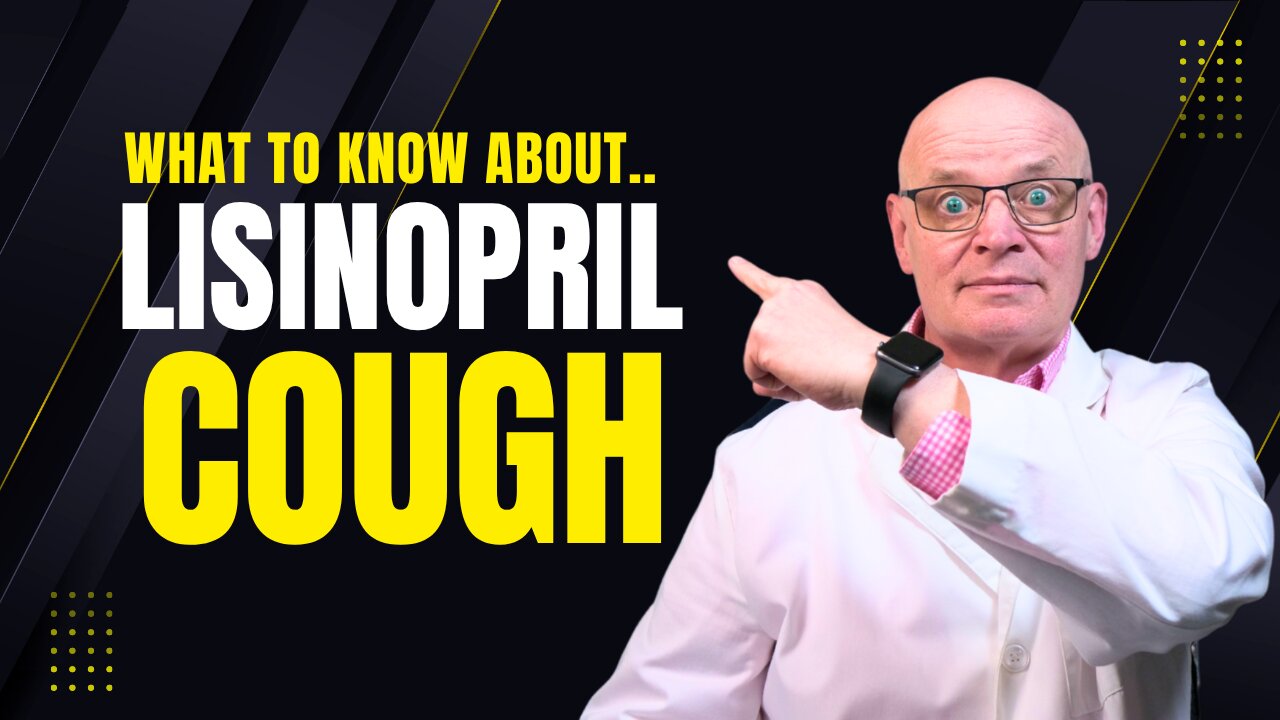Premium Only Content

Lisinopril’s Biggest Downside? That Dry Cough
Lisinopril Cough: Why It Happens and What to Do | Pharmacist Explains
Are you coughing after starting lisinopril? You’re not alone—and it’s not in your head.
In this video, Pharmacist Michael explains the science behind the infamous lisinopril cough—one of the most common and frustrating side effects of this popular blood pressure medication. Discover why it happens, who’s most at risk, and what you can do to stop it.
💊 Lisinopril is a trusted ACE inhibitor used to treat high blood pressure, heart failure, and protect the kidneys—especially in diabetics. But for some people, it causes a persistent dry cough that won’t go away… even with lozenges, teas, or over-the-counter remedies.
In this video, you’ll learn:
✅ What lisinopril is and how it works
✅ Why this medication causes coughing (hint: it’s about bradykinin)
✅ Who is most likely to experience the cough
✅ Whether you should switch to an ARB like losartan or valsartan
✅ How long it takes for the cough to go away after stopping lisinopril
✅ A real-life patient story with a happy ending
Whether you’re taking lisinopril yourself or supporting a loved one, this video will give you clear, evidence-based advice—straight from a board-certified clinical pharmacist.
📌 Timestamps:
00:00 – Intro: Is Lisinopril Causing Your Cough?
00:33 – What is Lisinopril?
01:10 – Why Lisinopril Causes Cough
01:57 – Who’s Most at Risk
02:40 – What You Can Do About It
03:59 -Meet Janet
04:43 – Final Thoughts & Takeaways
👍 If you found this video helpful, give it a like and subscribe for more straight talk on medications, supplements, and natural health.
💬 Have you experienced the lisinopril cough? Drop a comment below—your experience might help someone else feel less alone.
-
 LIVE
LIVE
The Bubba Army
2 days agoBad Bunny Disrespectful? - Bubba the Love Sponge® Show | 10/06/25
2,005 watching -
 2:00:52
2:00:52
BEK TV
3 days agoTrent Loos in the Morning - 10/06/2025
6.67K -
 1:21:55
1:21:55
Mike Rowe
4 days agoThis Is How We CHANGE Education Today | Meredith Olson #451 | The Way I Heard It
12.2K12 -
 1:18:46
1:18:46
Steve-O's Wild Ride! Podcast
3 days ago $1.29 earnedJacoby Shaddix Breaks Down Papa Roach Longevity | Wild Ride #269
10K4 -
 17:42
17:42
Nate The Lawyer
2 days ago $3.13 earnedHow A Criminal Illegal Alien Scammed His Way Into A $300k Government Job.
12.6K13 -
 28:46
28:46
DeVory Darkins
14 hours ago $14.75 earnedPritzker HUMILIATED after brutal fact check as Democrat candidate calls for political assassination
24.4K98 -
 19:54
19:54
Forrest Galante
11 hours agoPrivate Tour Of America's Best Marine Animal Facility
37.7K7 -
 9:25
9:25
MattMorseTV
1 day ago $18.58 earnedSupreme Court just DROPPED a NUKE.
32.3K71 -
 13:25
13:25
Nikko Ortiz
1 day agoWorst Karen TikTok Fails
32.9K10 -
 40:24
40:24
The Connect: With Johnny Mitchell
2 days ago $22.21 earnedInside The WORST Drug-Infested Slums Of Medellin, Colombia
72.9K31
